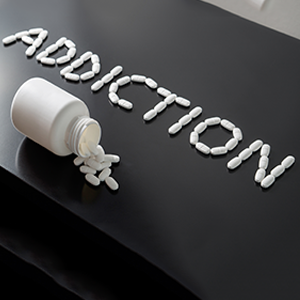Teen drug abuse – most notably of alcohol and opioids – has declined
considerably over the past decade. But this is not true for amphetamines,
now the second most commonly abused drug among high school seniors after
marijuana.
As many as one in 10 teens may be abusing amphetamines like Adderall, the
stimulant commonly prescribed to treat Attention Deficit/Hyperactivity
Disorder (ADHD), according to a New York University study published last
fall in the Journal of Drug and Alcohol Dependence. NYU
researchers found that a major national survey reporting amphetamine abuse
by nearly 8 percent of high school seniors may have been significantly
underestimating the problem. A third of the teens they interviewed weren’t
admitting to amphetamine abuse because they didn’t realize that Adderall is an amphetamine.
The problem is that Adderall and other prescription stimulants like it are
so readily available and so widely prescribed, young people tend to think
of them as harmless. Nearly every child has a classmate or sibling who has
been prescribed an amphetamine for ADHD – an estimated 5 to 10 percent of
young people. They see friends using the drug – with the blessings of
doctors, teachers and parents – to do better in school or on the athletic
field, and see no danger in using the drug to achieve the same apparent
benefit. They consider it a “study drug,” a drug meant to enhance their
performance.
As a pediatrician, this scares me because these drugs are not always
harmless. Serious potential side effects include sleep disorders, seizures,
depression, weight loss, psychosis, heart attacks and stroke. Amphetamines
(like their illicit cousin methamphetamine) carry a high risk of addiction,
both physical and psychological, and we know there is a correlation between
amphetamine abuse and abuse of other drugs. There is a reason these drugs
are classified as a controlled substance and require a written or specially
coded digital prescription.
My young patients tell me Adderall is incredibly easy to obtain – from the
medicine cabinets of family and friends, from their peers at school and
from online strangers. If they can’t get it for free, they can often buy it
for just a few dollars per pill.
Many teens see nothing wrong with using these drugs to stay up and study or
to better focus on a test. Some are even using them to improve their
athletic performance, which is especially dangerous because of the
cardiovascular impact: narrowed blood vessels, increased blood pressure,
dangerously high body temperature and irregular or rapid heart rate. And,
of course, participating in sports already places a considerable burden on
the cardiovascular system.
Some kids who abuse amphetamines just like the high. Many young people
grind up pills and snort them like cocaine.
As with any drug, the more you use an amphetamine, the more you may need to
take to achieve the same results. Young people who have been heavily
abusing amphetamines often have a miserable time stopping: They may crash,
binge eat, sweat, tremble, cry and rage. And if young people – who are
under a lot of pressure to perform – believe they can’t function in their
lives without misusing a drug, that is a psychological dependence that
should cause grave concern.
What to Look For
How do you know if your child is abusing Adderall or another stimulant?
Though signs of amphetamine abuse are similar to indicators of other
issues, including mood disorders like depression, these are a few things
you might notice:
-
Insomnia and other sleep irregularities
-
Anger and other aggressive outbursts
-
Paranoia and/or anxiety attacks
-
Loss of appetite
-
Sudden weight loss
-
Shortness of breath
If someone in your household is using Adderall or another stimulant for
ADHD, there are some practical things you can do to prevent abuse:
-
Count pills.
Though you want to encourage your teen’s independence, there is so
much pressure to share this drug that it is worth monitoring to be
sure your child is using it as prescribed.
-
Lock your medicine chest.
Even if you trust your own child, you don’t want to make your drugs
available to his or her visiting friends.
-
Set a good example.
Don’t use drugs yourself without a prescription or to get high.
-
Dispose of unused medication
. Many communities have medication take-back programs, or your
pharmacy may be able to dispose of them for you. Don’t flush them
down the toilet, because they will contaminate the water supply.
The best way to protect your child is to be aware and communicate. Find out
what your teen knows, both about drugs they are taking with a prescription
and the dangers of taking drugs like Adderall without a prescription. Do
research together. Learn and discuss the risks of abusing stimulants and
the research that shows they do not improve performance in the long run.
The NYU study is just one indication that many young people abuse drugs
like Adderall based on what their peers are doing, without any idea of what
they’re taking.
If you suspect amphetamine abuse or addiction, you and your child may need
to see a behavioral psychologist or another specialist recommended by your
pediatrician. The best long-term therapy will help your child develop
coping skills to get through life without drugs.
For more information about Adderall abuse among teens, visit the websites
of the
National Institute on Drug Abuse and the
Teen Treatment Center


